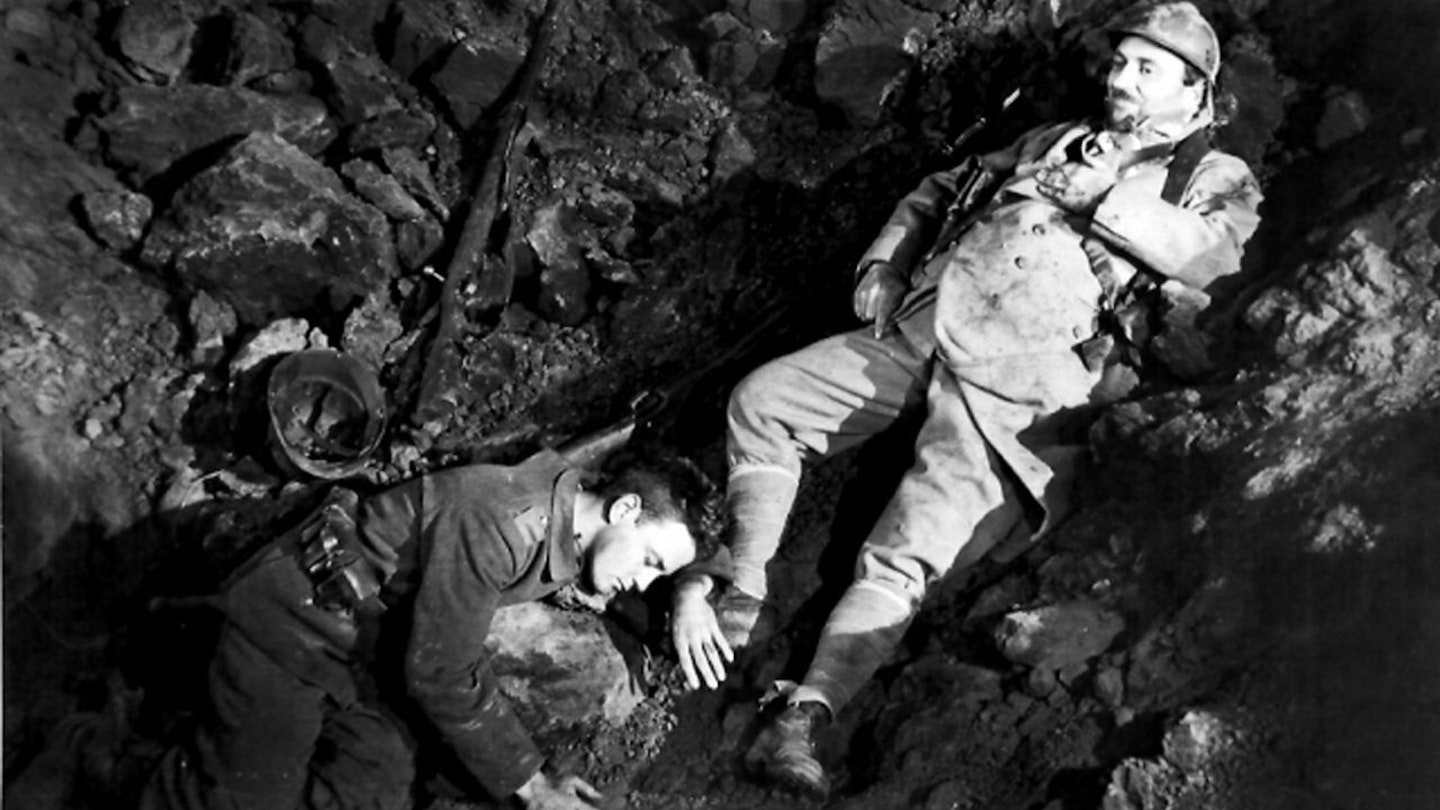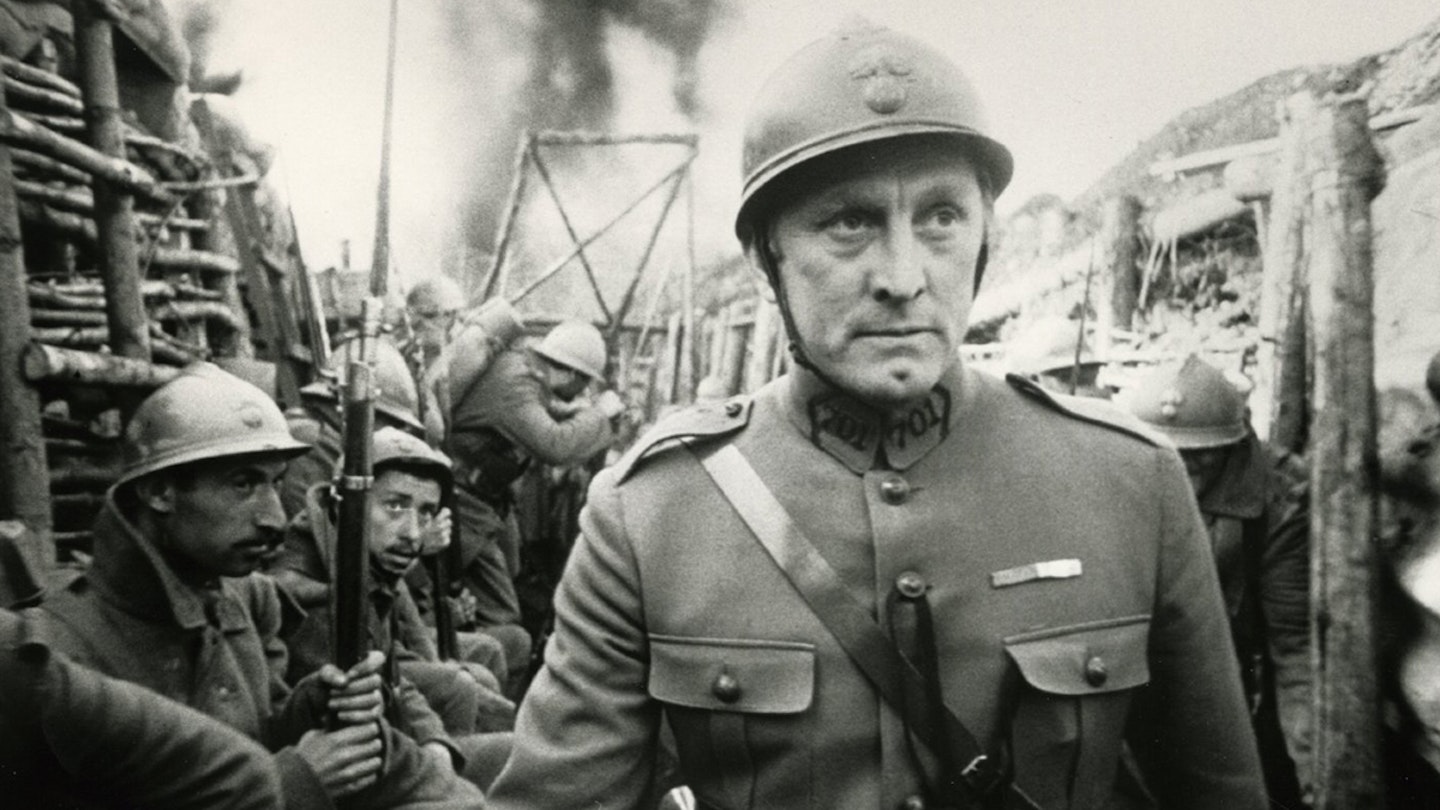Few films, to this day, have struck as powerful an anti-war message as Lewis Milestone’s extraordinary evocation of the tragic folly of war. Arguably, still the greatest WWI movie, his tender portrayal of innocent German youth is juxtaposed with the harrowing immediacy of trench warfare, shot with a telling verisimilitude many modern filmmakers, with all their tools, have failed to match.
Even more than the visceral evocation of trench life, with all its wanton squalor, the philosophical underpinnings of the film reach deep into the heart and head. At the opening, in the dreamy almost fairy-tale safety of their school life, they are resolved, thanks to the stirrings of their teacher, to sign up and fight the good fight. What becomes hastily clear amongst the mud and blood of fellow comrades and shadowy enemies alike is that there is no good fight to be fought, only a terrible one, where victory is a pointless as defeat.
Such a determined, for the time radical message, the soul of Remarque’s novel, finds its most focused point in the scene where Paul, whose eyes we follow to the battlefront, is trapped in a bomb crater in no-man’s land with a French solider, dying from the wound he gave him. Assaulted by remorse, he vainly tries to save him, prying through his clothes to find a name, a person beneath the victim.
The dialogue may feel arch and stagy by today’s standards, the verbose speeches over fallen comrades are hardly realistic, but they are telling, and no concessions are ever made to moral notions of good versus evil (especially as we are seeing it from the German point of view). All is madness, chaos and inescapable loss, captured with poetic and perfect simplicity in the motif of a butterfly watched by Paul from his trench, a reminder of the butterflies he would trap and pin in a glass case as a boy.





